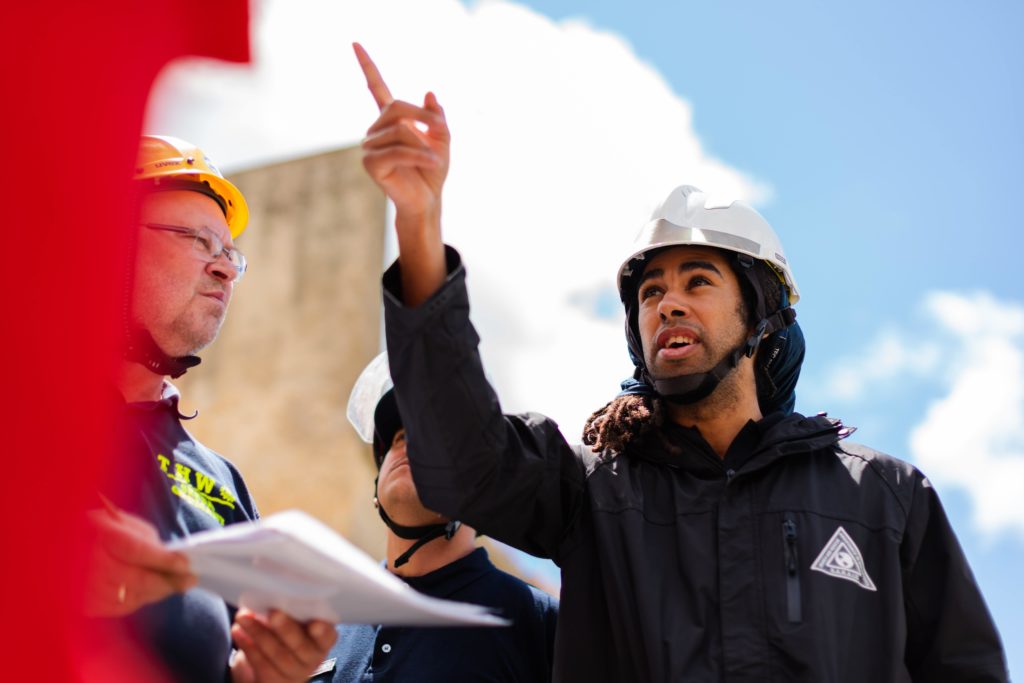Sector - Energy, Fuel & Utilities
New Emissions Target and the Queen’s Speech

Spring has presented UK construction with new food for thought. Between the UK’s new 2035 target to reduce emissions by 78% and the raft of legislation set out in the Queen’s Speech, the Government’s immediate and long-term priorities, have been laid bare.
From infrastructure and housing to education and the environment, construction will inevitably be impacted.
To find out how this will affect the sector, we asked a range of companies for their views on the recent announcements, whether they go far enough and what the industry’s next steps should be.
Tough love
“Whilst the UK Government’s 2035 emissions target is laudably ambitious, it needs to be backed by tough legislation, taxation and value-driven incentivisation.
“An effective incentives strategy needs to cover a wide range of low-carbon technologies and systems to meet different operational, and climate, needs. Critically, it has to be universal: residential or commercial, new build or retrofit, whatever the size or scope.
“Instead of pushing greenwashing tax breaks, why not offer firms which prioritise low-carbon building tech and circular building materials an apprenticeship or training grant? This would simultaneously help plug the green skills gap, and the upcoming challenges associated with the end of the furlough scheme.
“Tougher emissions taxes should also be considered; however, it doesn’t have to be all stick and no carrot. Tax revenue could go towards supplementing emission reduction programmes and incentives.”
Erik Boyter, CEO, WindowMaster
Resources for courses
“Renewable energy systems will be crucial to achieving the Government’s 2035 targets. My fear is that we’re not moving nearly fast enough, nor are we considering all the resources available to us. Whilst wind and solar are well established, tidal is often overlooked and still massively underexplored. However, this is about to change, with the Welsh Assembly, and the UK Parliament’s Environmental Audit Committee, making positive noises around tidal power.
“Further innovation by established companies such as SIMEC Atlantis, and emerging players like our own TPGen24, are making the case for viable, deliverable, sustainable and long-term solutions for 24/7 clean energy generation, the Holy Grail of renewables. In addition to helping meet 2035, and 2050 targets for that matter, the major infrastructure associated with these systems will provide a wealth of jobs, boost local economies and establish the UK’s global reputation for tidal energy construction.”
Stuart Murphy, Founder, TPGen24
Sustainable housing
“Whilst the Government’s ‘Build Back Better’ mantra is a welcome one, I’m wary it’s got its priorities skewed, dazzled by MMC, when cost effective, proven and longstanding traditional solutions already exist.
“I’m concerned that with a tunnel-vision commitment to invest solely in modular housing, policy makers are overlooking the vital role of traditional on-site construction in the housebuilding environment which, contrary to misleading commentary, can be equally as efficient, sustainable and cost effective as offsite options if correctly designed and specified.
“For me, criteria like ‘long-term value’ need more prominence. Yes, we urgently need to address the housing crisis but, we should not compromise on standards for a quick fix, which will inevitably result in poorly designed, short-life housing stock.
“Traditional, low-rise housing using bricks, blocks and mortar has been part of the national fabric for centuries. These structures, many of which still stand strong to this day, prove this system works and coupled with modern, passive design can achieve even greater performance. At the very least this type of build will outlast a few mortgage terms.
“I’m all for building back better, so let’s make sure we’re building homes fit for Brits!”
Chris Stanley, Housing Manager, Modern Masonry
Further education
“UK construction is at a crossroads. Currently, the industry is suffering from a rapidly ageing workforce, a post-Brexit skills drain and a distinct lack of diversity within the recruitment pool.
“For decades, construction and engineering-based career paths have been downplayed by our education system, as low-skill, dead-end blue-collar jobs. Yet you only have to look at the demand for, and fees commanded by, skilled engineers, architects, master builders, electricians, plumbers and decorators to see these are actually roles to aspire to.
“The UK Government’s recently launched ‘Lifetime Skills Guarantee’ is an encouraging step in the right direction. Amongst the 400 free courses being offered through the National Skills Fund, adults looking to develop professionally have the option of pursuing qualifications in engineering and construction.
“Policymakers have taken the first steps, now the industry has to come forward. We must better engage with current pupils, school leavers and young adults looking to improve their job prospects, showcasing the massive career opportunities within our vibrant sector.”
Fraser Robb, Managing Director, Perega
Strong signals
“It’s vital that the UK continues to invest in 5G technology if it’s to create the infrastructure needed for further digital, and economic, growth. The announcement of a Product Security and Telecommunications Infrastructure Bill is welcome news and will help catalyse the country, supercharging the rollout of 5G and resolving unreliable regional connectivity issues.
“Over the past 18 months we’ve seen just how important reliable broadband speeds are to our daily lives. The construction sector is no different. Super-fast, fibre-speed connectivity has now become intrinsic to the smooth running of a building site. We need to see 5G technology taken up with gusto, when it becomes readily available. Building applications require more data than ever before, so it’s imperative we have the right technology in place to meet that demand.
“We’re also now more aware of the risks to our online privacy and data. I believe this bill is a step in the right direction to securing our personal privacy and making us feel safer as we continue our reliance on smart technology.”
PJ Farr, Managing Director, UK Connect
The Government has noble intentions, however, its top line statements run the risk of becoming platitudes if more meat isn’t added to the bones. From our respondents, it’s clear it needs to take definitive action in a number of key areas. Making announcements and outlining plans are one thing, but making them a reality them is another.
Construction is flush with opportunity to help make improvements across a range of sectors, and establish the UK as a leader in sustainability, innovation and best practice building. However, there’s still considerable work to be done on plugging the skills gap, improving digital inconsistence and creating a richer, more strategic, mix of methods and process.
As we continue into the second half of the year, built environment professionals need to act on a shared vision to lead the way on the road to Net Zero, inspire the next generation and address the systematic problems which persist.
If you would like to read more stories like this, then please click here
Related Articles
More Energy, Fuel & Utilities Features
- Can we improve the design of an age-old method of heating?
21 Jul 25
There has been an especially significant rise in the popularity of underfloor heating in the last ten years.
- Why early MEP design collaboration holds the key to smarter buildings
24 Jun 25
Working closely is essential to ensure that all aspects of a building’s design contribute to its overall energy performance.
- Insight: Digitalisation and the future of low-carbon housing
23 May 25
Digitalisation is reshaping homes, playing a pivotal role in reducing carbon emissions and enhancing energy efficiency.






